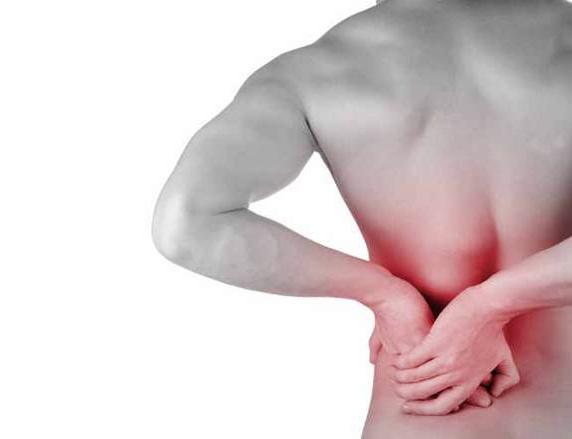Does excessive exercise endanger us for the longevity of our future and our quality of life as we age?
It’s a big question with many ramifications and implications for so many of us who are pulling out the big guns on the exercise front. Some of us may have memories of the fluoro spandex aerobics crazes of the 1980’s where we bopped, shimmied, girated and ‘pumped’ our way through sweat crazed sessions of high energy dance music with questionable hair styles and utterly inappropriate G-strings in places that really shouldn’t be seen in public.
I remind us all of this period of ‘exercise history’ as those of us who can remember those frenzied, almost cycadelic, anabolic infused days will also remember that come the 90’s, many of those famed instructors and bedazzled bodies that led those classes were achingly simpering their way around the house in Reeboks suffering with shin splints, fallen arches, Achilles tendonitis (not tendinopathy as it is now classified) combined with lower back contusions, disc bulges and osteoarthritic hips.
A client this week was faced with the uneviable prognosis of disc bulges in the lower cervical spine, possibly brought about through excessive overhead lifting with her weekly training regimen. Another client this week is faced with a degenerative and debilitating knee injury (or in his case – injuries) that may be brought about by overuse and ‘training through pain’. Without jumping on the negative implications of CrossFit, Strongman or Powerlifting regimes, (as I am quite fond of them) there is no doubt that this style of intense exercise regime can hold many dangers when the smallest of compensations and deviations occurs due to fatigue, over-training or poor instruction.
The worse thing is that perhaps sometimes we don’t even recognize those people that we perceive to be the ‘strong, solid, machines’ that continually perform at or above the top level of the gym/box, pushing out WOD’s with regularity and relative comfort, that they may be causing injury to themselves and endangering their quality of life.
The truth may be, as was the case with the 80’s aerobics craze, that we haven’t even begun to see the damage that we may be doing to ourselves with this very similarly ‘Go hard’ induced craze of exercise trends. And it’s not just the CrossFit devotees who are at risk. I have had many cases of injuries in the spinal segments that seemingly come from Boxercise, Boot Camp, Tough Mudder/Spartan Race training regimes that encourage a ‘full ball busting’ approach of towering regimes of composite exercises, combined with the big Olympic style lifts and all done with that defining element of SPEED.
Overtraining goes beyond just excessive “chronic cardio” or too many hours spent at the gym. Certain high-intensity exercise routines may push the body’s stress response too far, leading to a cascade of biochemical responses that can cause serious damage to one’s health in both the short and long term.
Chris Kresser is a founder of the Paleo-CrossFit community and he talks avidly about being aware of ‘overtraining with extreme exercise’. Taking it too far and too often has cumulative effect of downgrading systems in the body to detrimental levels. He proposes only 2-3 WOD style workouts a week combined with other forms of exercise, a combination which he says is a more sensible approach for conditioning and strength training. Rob Wolff, another founder of the Paleo/CrossFit revolution talks about the difference of ‘elite athletes’ and the importance of progression for those of us who are lesser mortals, who need to be exposed to complex movement patterns and allow the adequate time to adapt and ‘learn’ the concepts of basic movement patterns that become all important when you are throwing WOD’s into your workouts. He is very passionate about ‘quality control’ in any box or gym that offers beginners/on-ramp program that ‘trains’ you into the WOD level that has become the norm for CrossFit/Boot Camp style workouts.
Its yet another argument that we have to come back to quality training, adherence to technique, sensible approaches to training and overtraining, as well as being constantly aware that outside elements have a huge effect on how we respond to training regimes and stressing our body.
I can be seen to harp on about this element regularly in my articles but this latest case with a client, who is a ‘machine’ and a fit, healthy and wonderfully vibrant woman over 35yo, being faced with a condition that could see her potentially NOT being able to lift overhead in the future, supports my argument that we have to be mindful of all the elements involved. The slightest technical distortion, a workout done when tired, or working out when your body is in stress from illness or disease can lead to major issues further down the track.
There is also awareness to harken to in the social media with more serious issues such as rhabdomyolisis, where tissues DIE under intense exercise and then leak their contents into the blood stream which can then almost poison the person from the inside and athletes end up at the emergency room with throbbing limbs and excruciating pain, nausea and dark coloured urine. RHABDO used to be the realm of firefighters and soldiers who would occasionally get pushed too hard but cases are on the increase (not to alarming levels) but these cases are becoming more common in weekend warriors and people who are not allowing their bodies to be conditioned before undertaking extreme intense exercise regimes. It's not a massive alarm bell but it is something to be aware of and consider. Preparing for your training is important. Even 'fit' people need to be aware that specific events may require specific conditioning so that the muscles and the body has time to adapt and condition itself to be ready for the intense workload of a ultra bike ride, marathon or Spartan Race.
So be mindful of your limits. We are not all elite athletes and have a sole focus of getting through workouts and then having the rest of the day to recover. Thus we cannot expect to perform at the levels that ‘other athletes’ perform at or compare our performances with people who are ‘training specifically’ for a particular event or race or specific type of performance. Moderation is as important with exercise as it is with foods or behaviours. Too much of anything is not always a good thing. Be mindful of that now and you may thank yourself when you are 65yo and still able to ride a bike around the park with your grandkids!
Peter Furness



